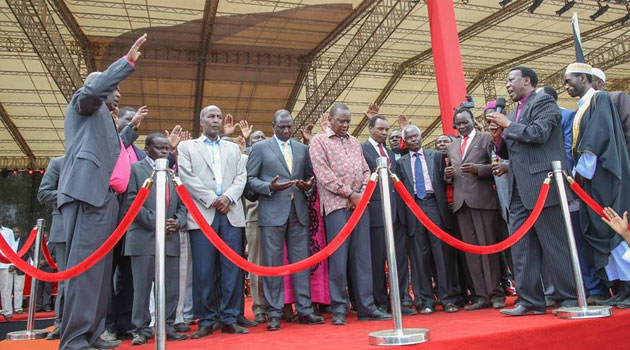| By Elizabeth Evenson In April, President Uhuru Kenyatta hosted a “thanksgiving service” at Afraha Stadium in Nakuru to express his gratitude that the International Criminal Court (ICC) dropped charges of crimesagainst humanity against his deputy president, William Ruto, and a co-defendant, Joshua arap Sang, early in the month. Uhuru called the case’s closure the end of “what has been a nightmare for my nation.” The case was the last pending before the ICC directly related to the deadly violence that rocked Kenya in the wake of the 2007 elections; charges against Uhuru himself were formally dropped last year. Supporters of Uhuru and Ruto celebrate, but the nightmare for victims of that violence goes on. Over the past eight years, my colleagues have interviewed many victims – first, to document the horrific violence; then, the absence of justice in Kenya, which left recourse to the ICC as a last resort. Most recently, our research underscored the lasting physical and pyschological trauma and socioeconomic hardship, particularly for survivors of sexual violence. The suffering has been made all the worse by the Kenyan government’s failure to provide medical care, psychosocial support, and compensation, much less any accountability. Uhuru has yet to make good on a promised “Restorative justice” und for victims. One woman who was raped and who was told that her husband was burned alive in the violence told my colleague: “I have so much shame. I feel hopeless. I just sit and wait to die.” It is imperative that the ICC, which has struggled in its prosecutor’s investigations and the court’s witness protection programs, learn lessons here. But Uhuru and Ruto – cementing a decades-long tradition in Kenya of impunity for election-related violence – have waged a relentless campaign at home and abroad to undermine the ICC since taking office in 2013. Even now, according to news reports, the government continues to try enlist the African Union in a threat to withdraw from the ICC. ICC judges have not linked either Uhuru or Ruto to witness interference, but Kenyan authorities have yet to surrender three individuals wanted by the ICC on charges of bribing witnesses in the Ruto case to The Hague. One judge in the case was clear that “a troubling incidence of witness interference and intolerable political meddling” merited a mistrial. A familiar refrain of the 2013 election campaign was that victims of the 2007-2008 violence should just “move on”. But last week, survivors of sexual violence were back in court pressing a constitutional petition to compel the government to restart investigations. More than 900 victims, in spite of every effort to dissuade support for the ICC process, remained registered to participate in the ICC’s case against Ruto; more than 800 stayed with the case against Uhuru In the absence of the ICC, the road to justice for Kenya’s post-election violence victims is unclear. But similar struggles – by victims of Chadian dictator Hissène Habré, of genocide at Srebrenica, and of Latin American juntas – show that eventually justice can catch up even with the politically powerful. Until that day arrives, there is little cause for celebration. The writer is Senior Counsel, International Justice Program – Human Rights Watch. |
Victims missing out on justice is no cause for celebration
Please login to join discussion







